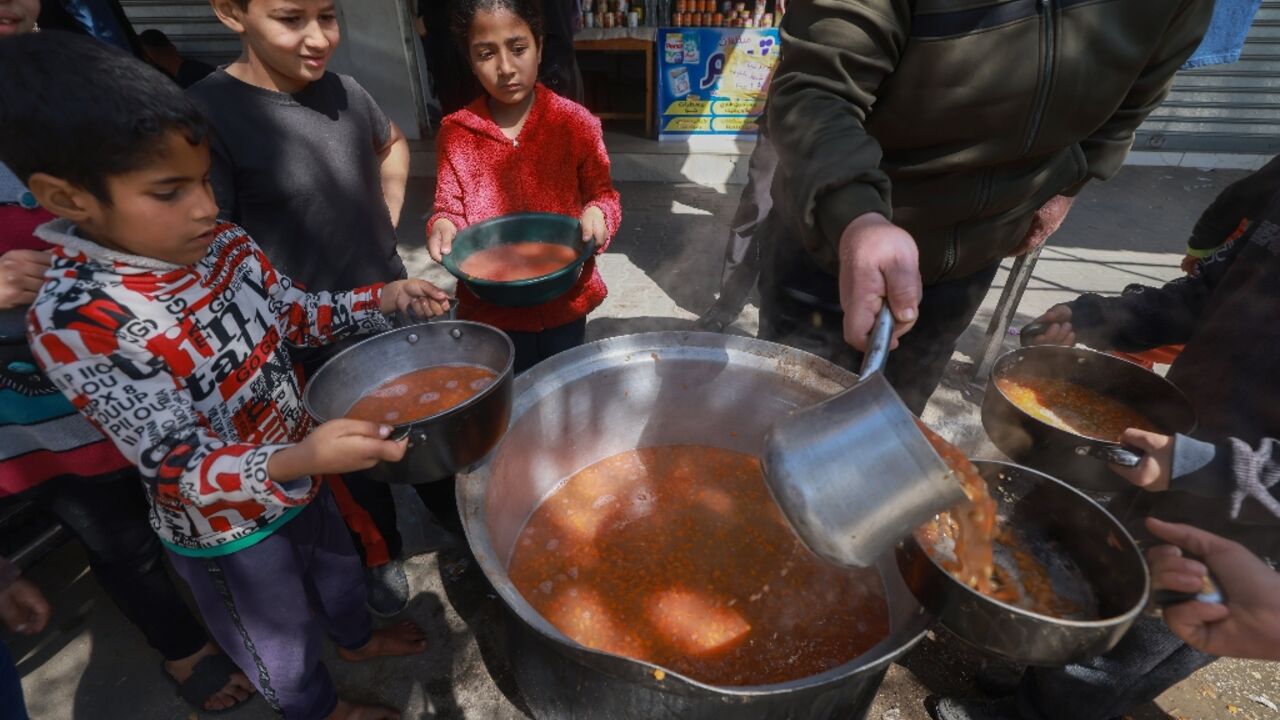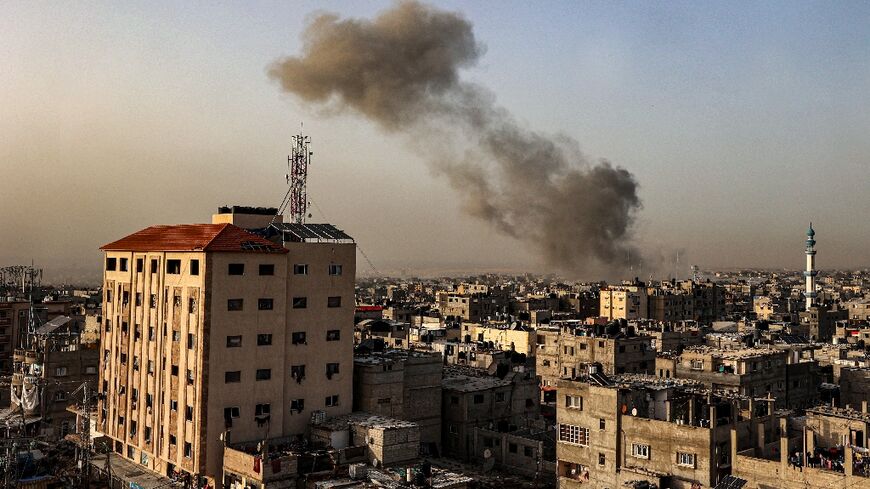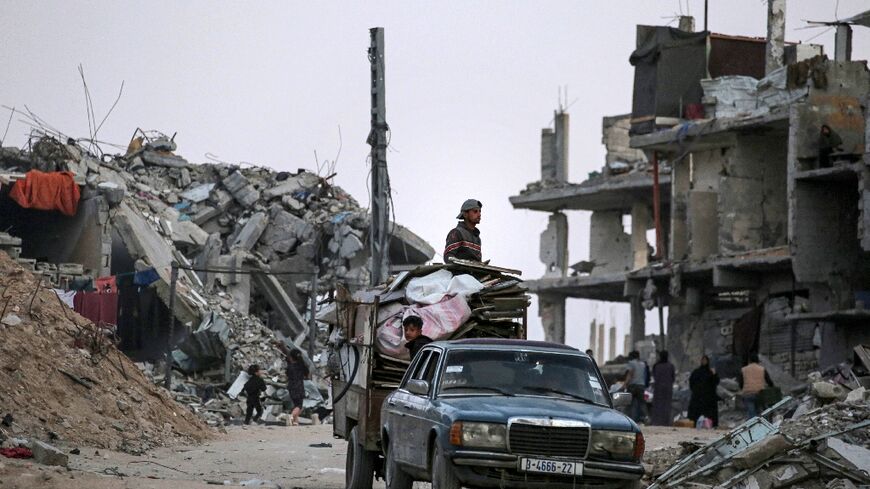S. Africa urges more emergency ICJ measures against Israel over Gaza 'starvation'

South Africa on Wednesday petitioned the International Court of Justice to impose fresh emergency measures on Israel over what it described as the "widespread starvation" resulting from its Gaza offensive.
It is the second time Pretoria has asked the court for additional measures -- its first request in February was denied.
South Africa said it was "compelled to return to the Court in light of the new facts and changes in the situation in Gaza -- particularly the situation of widespread starvation" during the offensive.
Pretoria said its application may be "the last opportunity that this Court shall have to save the Palestinian people in Gaza already dying of starvation, and now 'one step' from famine," citing the UN Office for the Coordination of Humanitarian Affairs.
The UN has warned famine is looming and desperate crowds have stopped and looted food aid trucks.
Dire shortages of food and water amid the Gaza war sparked by Hamas's October 7 attack have killed at least 18 people, said the health ministry in the Hamas-controlled Palestinian territory.
"Palestinian children are starving to death as a direct result of the deliberate acts and omissions of Israel -- in violation of the Genocide Convention and of the Court's Order," charged South Africa.
Pretoria urged the court to order an "immediate halt" to fighting, the release of all hostages, the end to Israel's blockade of Gaza, and the provision of emergency aid.
The ICJ was set up to rule on disputes between states and while its judgements are legally binding, it has little means to enforce them.
For example, the court has ordered Russia to halt its invasion of Ukraine -- to no avail.
- 'Provisional measures' -
In a ruling in mid-January that made headlines worldwide, the ICJ, based in The Hague, ordered Israel to do everything it could to prevent genocide during its offensive in Gaza.
The court also ruled that Israel must allow aid into Gaza to ease the desperate humanitarian situation there.
These were so-called "provisional measures", emergency steps Israel needed to take while the court assesses the wider issue of whether it is committing genocide in Gaza -- which could take years.
South Africa has accused Israel of breaching the 1948 UN Genocide Convention -- set up in the aftermath of World War II and the Holocaust -- during its military campaign in Gaza.
Pretoria hailed the January judgement as a victory and said it should lead to a ceasefire.
However, in mid-February, the court rejected a request by South Africa to pressurise Israel to halt an offensive against the Gaza city of Rafah.
Israel has throughout dismissed the court proceedings.
Prime Minister Benjamin Netanyahu said in January that the charge against Israel "is not only false, it's outrageous, and decent people everywhere should reject it".
Israel stressed during the hearings that it was acting in self-defence after the Hamas attacks of October 7 and was doing all in its power to ease the plight of civilians.
The Gaza war broke out after Hamas launched its unprecedented attack on southern Israel that resulted in about 1,160 deaths, most of them civilians, according to an AFP tally based on official Israeli figures.
The militants also took around 250 hostages. Israel believes 99 of them remain alive in Gaza and that 31 have died.
Israel's retaliatory offensive has killed at least 30,717 people, mostly women and children, according to the Gaza health ministry.





